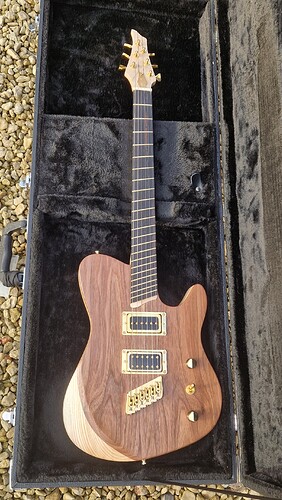Hi everyone,
I just found out about Troy after a EricHaugenGuitar recommendation.
I am currently building a mustang style guitar and have only experienced 25.5 and 24.75 so far.
I am yet to stat developing my technique and it was pretty interesting to find this place, but my main question is really about gear now.
Being a 5’8 person and having always felt 25.5 (and even 24.75) are unnecessarily big I decided to build the guitars with a luthier.
My main fear about anything below 24.4 is that I am mostly a grunge/metal player and that’s my only trick to be honest. I am a really simple player restricted to those styles and don’t wan’t my tone harmed, but want maximum ergonomy.
Current options are 24’’ with 1.63 inches nut width (and proportional string spacing), or 24.4’’ with 1.65mm inches nut width and 34.3mm string spacing.
My question is: should I get rid of the fear of having tone affected too much for those styles and stick with the 24’’/1.63?
Will I feel those are too small, considering my size?
Is 24’4’’/1.65 a more balanced option all around?
I can make 3 custom guitars, but I really wish I would nail the model in the first one.
Random info:
All of them are gonna have tune-o-matic bridges (kinda irrelevant info).
I have played a 24’’ squier mustang (35mm body thickness) once and felt a little bit crowded in the first fret and body too thin.
I hope you guys understand how important this is, I absolutely ergonomy is key and every detail is supreme.
Thank you so much,
Felipe

 .
.